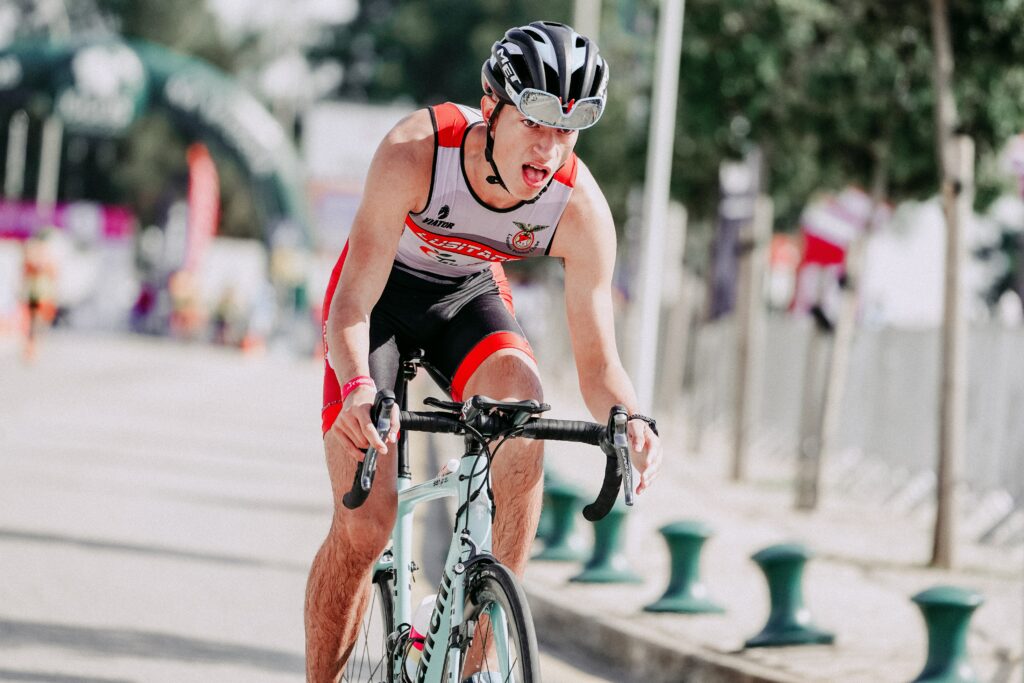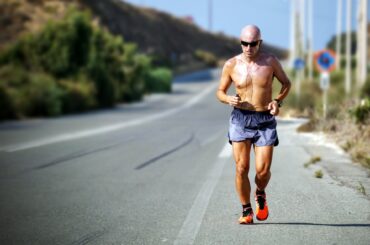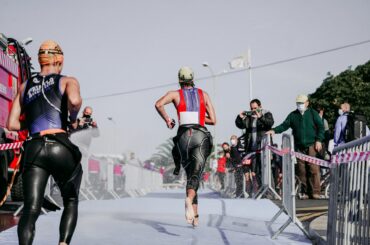Triathlon is a demanding sport that requires an athlete to excel in three disciplines: swimming, cycling, and running. One critical aspect of triathlon performance that is often overlooked is the fourth discipline, triathlon nutrition. Whether you’re a beginner or an experienced triathlete, optimizing your nutrition plan can significantly impact your training, recovery, and race day performance. In this comprehensive guide, we’ll dive deep into triathlon nutrition, providing you with essential knowledge and practical tips to fuel your body and achieve your goals.
Table of Contents
- Understanding the Importance of Triathlon Nutrition
- Your Daily Triathlon Diet: Building a Strong Nutritional Foundation
- Monitoring Your Macros: Carbohydrates, Proteins, and Fats
- Achieving Balance: Healthy Weight and Body Composition
- Pre-Workout Nutrition: Fueling for Success
- During-Workout Nutrition: Sustaining Energy and Performance
- Post-Workout Nutrition: Recovery and Muscle Repair
- Special Considerations: The Ketogenic Diet and Triathlon
- Race Day Nutrition: Planning and Execution
- Common Mistakes in Triathlon Nutrition and How to Avoid Them
Understanding the Importance of Triathlon Nutrition
Triathlon nutrition is a critical component of your training and racing success. A well-planned and executed nutrition strategy can provide you with the energy needed to perform at your best, support muscle repair and recovery, and maintain optimal health throughout your season. Neglecting this aspect of your triathlon journey can lead to suboptimal performance, increased risk of injury, and decreased overall well-being.
In this guide, we will explore the fundamental principles of triathlon nutrition, including daily dietary habits, macronutrient balance, and the unique nutritional needs of triathletes during training and racing. By understanding and applying these principles, you can take control of your nutrition, fuel your body effectively, and ultimately, achieve your triathlon goals.
Your Daily Triathlon Diet: Building a Strong Nutritional Foundation
While race day nutrition is crucial, your daily diet plays an equally important role in your overall health and performance. A well-rounded daily diet helps your body adapt to training, recover more efficiently, and maintain a healthy weight. By focusing on a nutrient-rich diet consisting primarily of whole foods, you can set the stage for success both in training and on race day.
A healthy triathlete diet should include a variety of nutrient-dense foods, such as fruits, vegetables, lean proteins, whole grains, and healthy fats. Aim to consume a diet that closely aligns with standard healthy eating recommendations, adjusting your caloric intake as needed to accommodate changes in training volume and intensity.
In the sections that follow, we will delve deeper into the specifics of triathlon nutrition, focusing on macronutrient ratios, meal timing, and specialized nutritional considerations for various workout types and race distances.
Monitoring Your Macros: Carbohydrates, Proteins, and Fats
Each of the three macronutrients (carbohydrates, proteins, and fats) serves a vital role in a triathlete’s diet. While the exact amounts needed vary based on individual factors, such as genetics, training regimen, and medical conditions, a general guideline can help shape your nutritional plan.
Carbohydrates
Carbohydrates are your body’s primary energy source, making them a crucial element of your triathlon diet. Your carbohydrate needs can range from 3 to 12 grams per kilogram of body weight per day, with a higher intake recommended during periods of increased training intensity and duration.
Before and during high-intensity workouts and races, prioritize carbohydrate-rich foods and beverages, as they can provide an immediate energy boost and help maintain performance levels. Examples include sports drinks, energy gels, and easily digestible fruits like bananas.
Proteins
Protein is essential for muscle repair and recovery, making it a vital component of your triathlon nutrition plan. Aim for 1.4 to 2 grams of protein per kilogram of body weight daily, with a focus on consuming a mix of animal and plant-based protein sources.
Incorporate protein-rich foods, such as lean meats, fish, eggs, dairy, beans, and legumes, into your meals and snacks. Additionally, consume a protein-rich snack or meal within two hours of completing a workout to support muscle recovery.
Fats
Fats play a crucial role in nerve function, organ protection, and providing essential fatty acids. Aim for 20% to 35% of your total daily caloric intake to come from healthy fats, such as avocados, nuts, seeds, and olive oil.
It’s essential to strike a balance between carbohydrate and fat consumption, particularly for athletes focusing on long-course or Ironman triathlons. While a high-fat, low-carb diet may promote fat adaptation, it can also hinder performance, as we’ll discuss later in this guide.
Achieving Balance: Healthy Weight and Body Composition
Striking a balance between supporting your training and maintaining a healthy weight can be challenging for many triathletes. Increased training volume often leads to a heightened appetite, which can result in weight gain if not managed properly.
Conversely, some athletes may prioritize weight loss over adequate fueling, leading to suboptimal training adaptations, increased risk of injury, and potential long-term health issues.
By focusing on nutrient-dense whole foods and incorporating a variety of macronutrients, you can support your training while maintaining a healthy weight and body composition. This approach can help you feel your best and perform optimally in your triathlon endeavors.
Pre-Workout Nutrition: Fueling for Success
Proper pre-workout nutrition provides your body with the necessary energy to perform at its best during training and racing. Aim to consume a meal or snack comprised of easily digestible carbohydrates, moderate protein, and low fat and fiber 1 to 4 hours before your workout.
Experiment with different foods and meal timing to determine the optimal pre-workout nutrition strategy for your individual needs. Some suggested pre-workout meals include:
- Oatmeal with fruit and a drizzle of honey
- Toast with peanut butter and banana
- A fruit smoothie with yogurt and a scoop of protein powder
- A rice bowl with lean protein, veggies, and soy sauce
Remember, the timing and composition of your pre-workout meal can significantly impact your performance and comfort during your training session. Fine-tune your pre-workout nutrition plan through trial and error in training to find the best approach for your unique needs.
During-Workout Nutrition: Sustaining Energy and Performance
During your training and racing, your nutrition priorities should focus on providing a steady supply of carbohydrates, maintaining proper hydration, and replenishing electrolytes, particularly sodium.
Hydration and Electrolytes
For workouts lasting less than an hour, drinking water is sufficient for maintaining hydration. However, for longer sessions or high-intensity workouts, aim to consume an electrolyte drink containing sodium to help replenish lost electrolytes and maintain proper fluid balance.
Fuel Types and Timing
For workouts lasting longer than 60 to 90 minutes, it’s essential to consume carbohydrates to sustain energy levels and support optimal performance. Aim to consume 30 to 60 grams of carbohydrates per hour of exercise, starting within the first 15 minutes of your workout.
Choose easily digestible carbohydrate sources, such as sports drinks, energy gels, or fruit, to minimize gastrointestinal discomfort and promote rapid absorption.
Post-Workout Nutrition: Recovery and Muscle Repair
A well-planned post-workout meal or snack is crucial for supporting muscle repair, replenishing glycogen stores, and promoting overall recovery. Aim to consume a mix of carbohydrates and protein within 30 to 60 minutes of completing your workout, particularly after long or high-intensity sessions.
Some suggested post-workout recovery options include:
- A protein shake with a banana or other fruit
- Greek yogurt with berries and granola
- Chocolate milk and a whole-grain bagel
- A rice bowl with lean protein, veggies, and a sauce of your choice
Remember, not every workout requires a large recovery meal. Focus on consuming nutrient-dense recovery meals or snacks after long, moderate-intensity workouts, high-intensity sessions, or when completing multiple workouts in a single day.
Special Considerations: The Ketogenic Diet and Triathlon
The ketogenic diet, which emphasizes high fat and low carbohydrate consumption, has gained popularity among some endurance athletes. While this dietary approach may promote fat adaptation and weight loss, it’s essential to consider the potential drawbacks for triathlon performance.
Research has shown that while the ketogenic diet can increase fat oxidation, it may also decrease exercise economy and hinder an athlete’s ability to perform at race-level intensity. Additionally, no significant improvements in performance have been observed in athletes following a ketogenic diet compared to those consuming a higher carbohydrate diet.
Ultimately, the decision to follow a ketogenic diet is a personal one. However, it’s essential to weigh the potential benefits and drawbacks, and consider whether this approach aligns with your individual triathlon goals and nutritional needs.
Race Day Nutrition: Planning and Execution
A well-executed race day nutrition plan can be the difference between a successful race and a disappointing finish. Start by reviewing your training nutrition strategies and modifying them as needed to accommodate the unique demands of race day.
Some key considerations for race day nutrition include:
- Consuming a carbohydrate-rich meal 3-4 hours before the race
- Hydrating with water or an electrolyte drink leading up to the race
- Consuming a sports gel or other easily digestible carbohydrate source 20-30 minutes before the race start
- Regularly consuming carbohydrates, fluids, and electrolytes throughout the race, aiming for 30-60 grams of carbohydrates per hour of exercise
- Adjusting your nutrition plan based on race conditions, such as temperature and humidity
Remember to practice your race day nutrition plan during training to ensure that your body can effectively process and utilize the fuel you provide.
Common Mistakes in Triathlon Nutrition and How to Avoid Them
Despite the best intentions, many triathletes make mistakes when it comes to their nutrition. Some common pitfalls include:
- Fasted training: While it may promote weight loss, fasted training can hinder performance and lead to suboptimal training adaptations.
- Overemphasis on body weight: Focus on fueling your workouts and building strength, rather than obsessing over weight loss.
- Inadequate pre-workout nutrition: Ensure you consume an appropriate meal or snack before workouts to optimize performance.
- Neglecting during-workout nutrition: Regularly consume carbohydrates, fluids, and electrolytes during long or high-intensity sessions to maintain energy levels and support optimal performance.
- Overcompensating post-workout: Not every workout requires a large recovery meal. Aim for nutrient-dense recovery meals or snacks after particularly long or intense sessions.
By identifying and addressing these common triathlon nutrition mistakes, you can optimize your diet, improve your performance, and ensure you’re fueling your body effectively throughout your triathlon journey.





